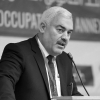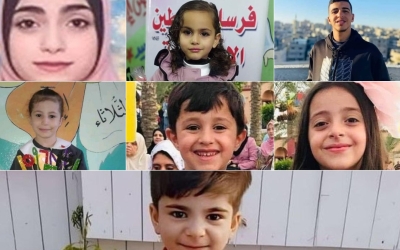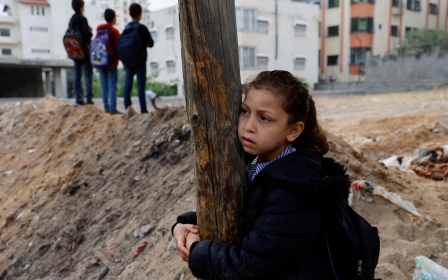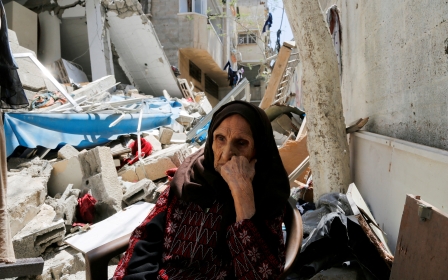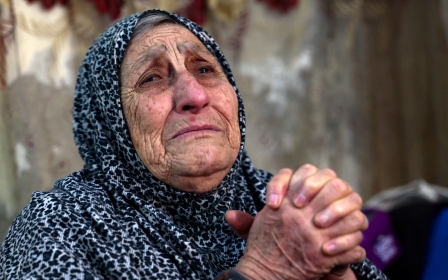Nakba at 75: How many more children have to suffer?
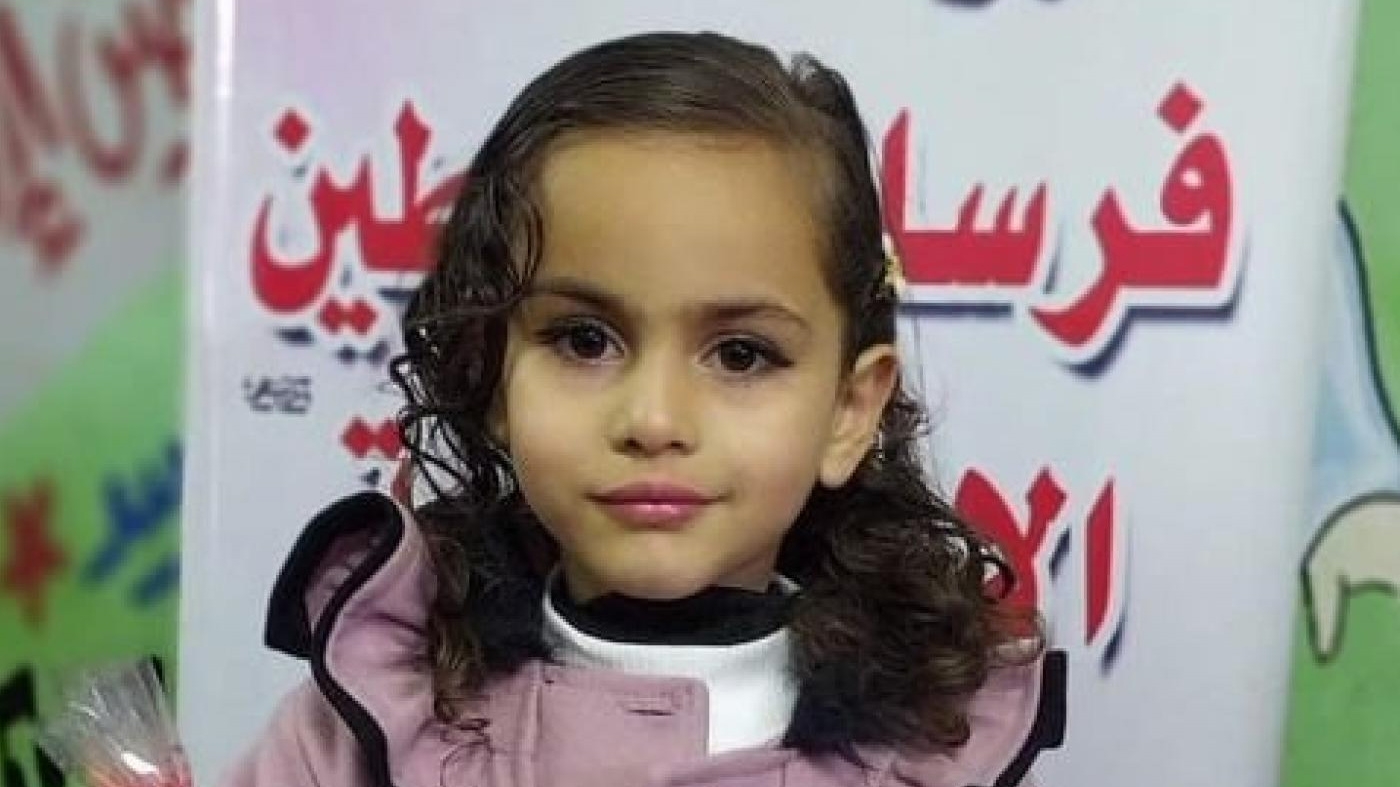
Hajar Khalil Salah el-Bahtini posed for the camera, proudly clutching her kindergarten graduation certificate, which was adorned with balloons and cartoon characters.
It was a moment of celebration, but that wasn’t why the photo of her special day was shared around the world last week. Hajar, just five years old, was killed as she slept on the night of 9 May. She was among 13 Palestinians killed that night, including four children, as a result of Israel’s horrific, unprovoked military assault on residential buildings in the besieged Gaza Strip.
When I saw Hajar’s photo celebrating the last milestone in her short life, I wondered: how many more generations of our children will suffer at the hands of Israel’s settler-colonial and apartheid regime? How many more will have their lives cruelly cut short, with no consequences for the perpetrator of these crimes?
The death toll from Israel’s latest assault on Gaza has surpassed 30, including six children. In the occupied West Bank, families and their young children suffer from crippling movement restrictions, and are routinely displaced as Israel demolishes their homes. More than 550 Palestinian children have been displaced as a result of home demolitions from May 2022 to end of April 2023.
It has been 75 years since the Palestinian people were ethnically cleansed and forcibly expelled from their ancestral lands, homes and properties during the 1948 Nakba (meaning “catastrophe” in Arabic).
New MEE newsletter: Jerusalem Dispatch
Sign up to get the latest insights and analysis on Israel-Palestine, alongside Turkey Unpacked and other MEE newsletters
Our society was decimated during the Nakba, with more than 500 villages and towns destroyed, and dozens of massacres carried out against innocent civilians; more than 13,000 Palestinians were killed during this period.
The Nakba left a brutal legacy, with around 750,000 Palestinians displaced from their homes, denied the right to return to their villages and towns of origin. Today, around six million Palestinians are registered as refugees with the United Nations.
Oppression of Palestinians
Since 1948, Israel has established a regime of racial domination and oppression over us. In the immediate aftermath of the Nakba, Israel adopted a series of laws, policies and practices that sealed the dispossession of the indigenous Palestinian people, systematically denying the right of return for refugees and other Palestinians abroad.
Israel imposed a system of institutionalised racial discrimination over those who remained on the land, many of whom had been internally displaced. Such laws constitute the legal architecture of the Israeli apartheid system, which continues to be imposed on us today - even on the youngest of us, children such as Hajar, one of the latest victims of this cruel regime.
Apartheid has no place in our world, and Israel's apartheid system must be dismantled now
As we commemorate 75 years since the Nakba, the Israeli government continues its de jure and de facto annexation of the occupied West Bank. This represents the continuation of Israel’s land grabbing, pillaging and displacement of Palestinians through the maintenance of its apartheid system.
As reaffirmed by UN special rapporteurs, Israel’s continued annexation drive is a testament to its system of 21st-century apartheid, leaving in its wake the demise of the Palestinian right to self-determination.
This year, as we commemorate the 75th Nakba, Israel’s most right-wing and racist government has intensified its oppression of us. Extrajudicial killings have become a regular occurrence in the occupied West Bank, including East Jerusalem.
During the past 75 years, two things have been glaringly absent: accountability for the countless crimes and human rights violations committed by Israel, and action from third-party states and international bodies. The crimes of the Nakba - including ethnic cleansing, expulsion of Palestinians, extensive destruction of Palestinian property, and prolonged denial of refugees’ right of return - have never been prosecuted or remedied.
Whitewashing Israeli crimes
On the contrary, last month, European Commission President Ursula von der Leyen celebrated “75 years of vibrant democracy in the heart of the Middle East”, whitewashing the crimes Israel has committed since the Nakba up to this day.
She suggested that Israel had “made the desert bloom” - a racist, anti-Palestinian trope implying that Israel cultivated a barren, uninhabited land. This notion erases Palestinian history and presence, while shamelessly endorsing the aggressive acts of a colonial power that has engaged in persecution, annexation and state terrorism against the Palestinian people during its prolonged, illegal occupation.
As von der Leyen delivered her speech, we listened from our office at Al-Haq, which only last year, along with several other prominent Palestinian civil society organisations, was raided by Israeli forces on spurious, politically motivated grounds. They used “terrorist” designations to silence and curtail our legal work to end Israel’s impunity.
Yet, despite this attempt to criminalise our work - despite attempts to erase our history, deny our existence and silence us - we, the indigenous Palestinian people, are here, and we will remain here as we continue to fight for our liberation.
We call on the international community to join our struggle for self-determination, an inalienable right under international law, and to hold Israel accountable for 75 years of violations against the Palestinian people.
There are many possible paths to a just future, but none should be based on permanent occupation, settler-colonialism, and the domination and oppression of one group of people by another. Apartheid has no place in our world, and Israel’s apartheid system must be dismantled now. This is our promise to Hajar.
The views expressed in this article belong to the author and do not necessarily reflect the editorial policy of Middle East Eye.
Middle East Eye delivers independent and unrivalled coverage and analysis of the Middle East, North Africa and beyond. To learn more about republishing this content and the associated fees, please fill out this form. More about MEE can be found here.


